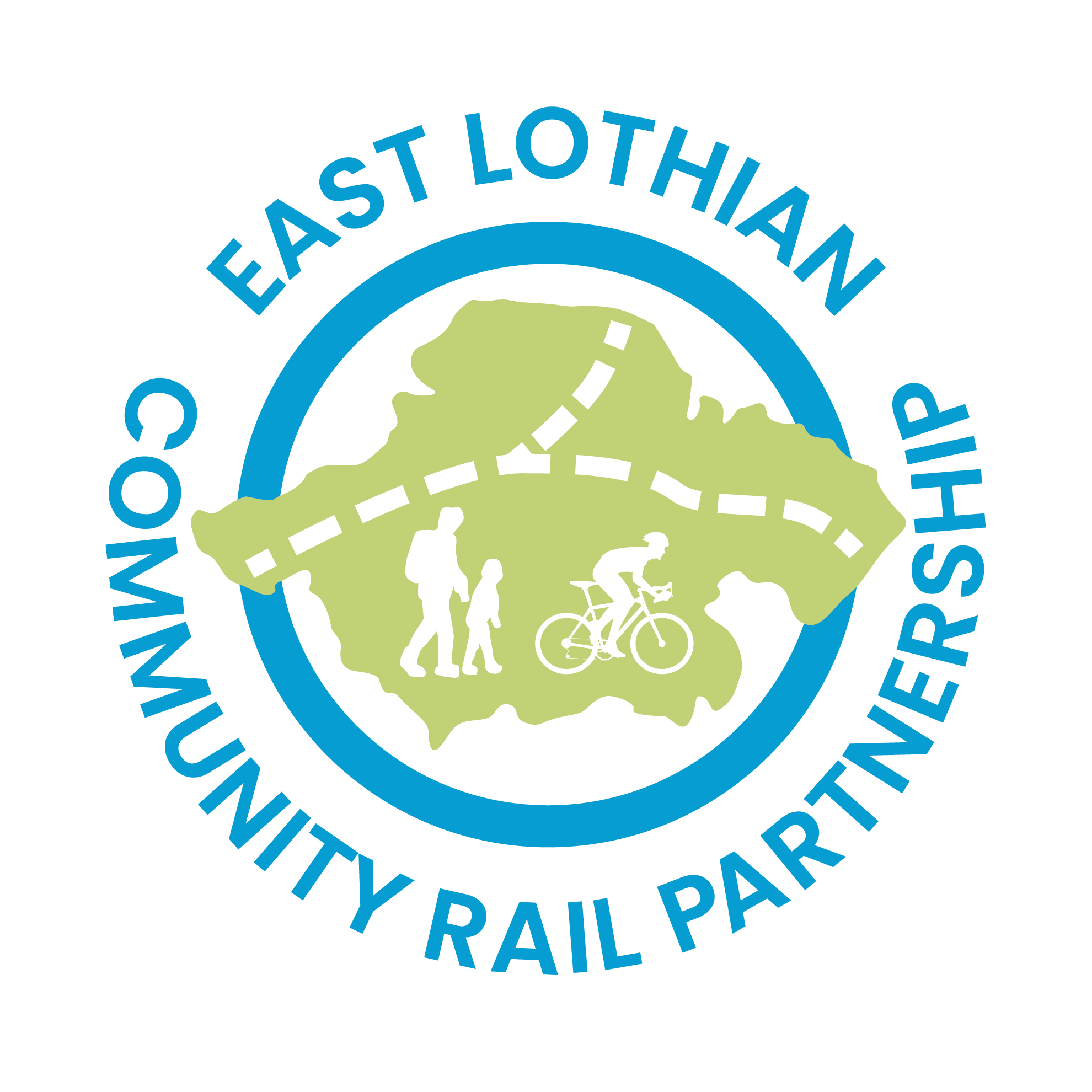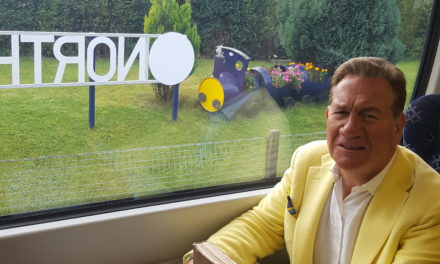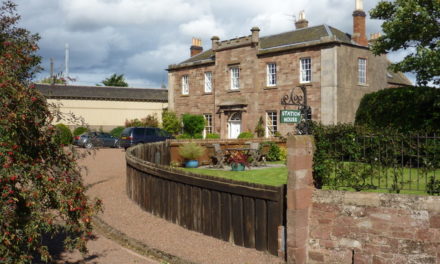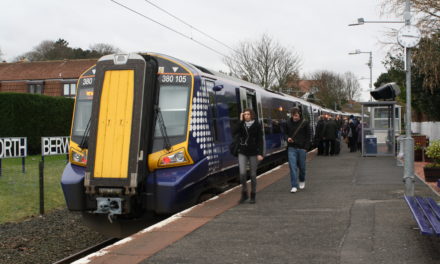The speaker at the CRAG meeting on 1 December 2015 was Norman Hall from North Berwick and he related his role in the campaign to save the line from closure. These are my notes on his presentation in which he related from memory events which took place almost 50 years ago.
At the time he was a senior manager in the brewing industry, working at the Holyrood brewery and commuting daily by train from North Berwick. At the request of others in the town he took on the leading role in the campaign, he stressed that it was very much a team effort and went on to outline his part in the campaign.
They realised that the key decision would be taken at the Transport Users Committee meeting, the case for the retention of the Borders Railway had already been lost and so they set about a campaign to ensure that the North Berwick line did not suffer the same fate. They had two years before their hearing was due and so sufficient time to mobilise. Norman got himself elected to the North Berwick Town Council and set out to foster relationships with key political figures who might help the cause. He particularly mentioned J.P.McIntosh who was the Labour MP for the area and Neil Carmichael, Under Secretary for Transport – The Transport Minister being Barbara Castle. He persuaded the Town Council to grant funding to the campaign which allowed him to take politicians for lunch and for the campaign to appoint a consultant. He explained that they carried out detailed research and surveys and informed locals that they could write letters of objection – the number of letters being an important element in making the case for retention. 10 000 standard letter were printed which only required the objectors to sign and post them. The letters were distributed in North Berwick, Drem, Prestonpans and Longniddry.
He commented on other rail closures at the time as well as the Borders and he mentioned many lines in Fife, including the one to St.Andrews where people realised too late that without a strong campaign the lines would be lost. He explained that at many of the Committee hearings into lines in Fife only a small number of local people attended. For the North Berwick line he said that the campaigners had accepted that a reduced level of service could be introduced as long as the line remained open, they also proposed the introduction of a 10 journey ticket system instead of a weekly season ticket.
After a long campaign the hearing took place in the summer of 1969. The venue was the Pavilion in North Berwick and around 400 to 500 people attended, the British Railway Board and the local bus company presented the case for closure and the campaigners presented their case for the retention of the line. He explained how he had persuaded the Town Council to provide further funds for a QC in full court dress to lead the evidence. There was no opportunity for the campaigners to question those putting the case for closure and it was normal practice for the Committee to make their decision at the end of the hearing – there being no right of appeal. The hearing was scheduled to last from 2pm to 5 pm but ran on longer than this and the Committee members were visibly tiring by the end. Finally, when it was believed that all the evidence in favour of saving the line had been heard the Committee Chairman asked it there was any final evidence that anyone wished to give. A lady stood up to speak – she explained that she visited North Berwick by train to see her dying mother and would be unable to do so if the line closed. This was a very moving intervention and clearly impacted on members of the Committee – in particular the three lady members. Norman explained that he did not know the lady and was not able to speak with her afterwards but believed that the evidence she gave was an important, but unexpected, intervention as it introduced emotion to the proceedings and prior to that the evidence had been purely factually based.
The meeting then closed and the Committee “made their escape from an aggressive meeting” – unusually they made no decision at the time and deferred the decision for several days. (David Spaven subsequently advised me that he is aware of two other hearings where the decision was deferred – these being the Waverley Route and the Far North Line). This gave the campaigners one last chance and they wrote a letter to the Committee calling into question parts of the evidence given by the bus company in support of the closure. The final decision of the Committee was that the line should stay open and this was supported by the Secretary of State. The level of service was slightly reduced and the 10 journey ticket system was introduced. Over time the service level steadily increased and the line has gone from strength to strength with both trains and platforms being progressively lengthened.
(John Yellowlees subsequently advised me that the service level was cut to three a day on Mondays to Fridays reviving slightly with the return of a couple of trains in the 1970’s and then to two hourly and soon hourly in the mid-1980’s.)
This article was first published on 08 December 2015 by Colin Howden and written by Paul Tetlaw based on reports on a Capital Rail Action Group (CRAG) meeting held in Edinburgh on 1 December 2015 (transformscotland website)





